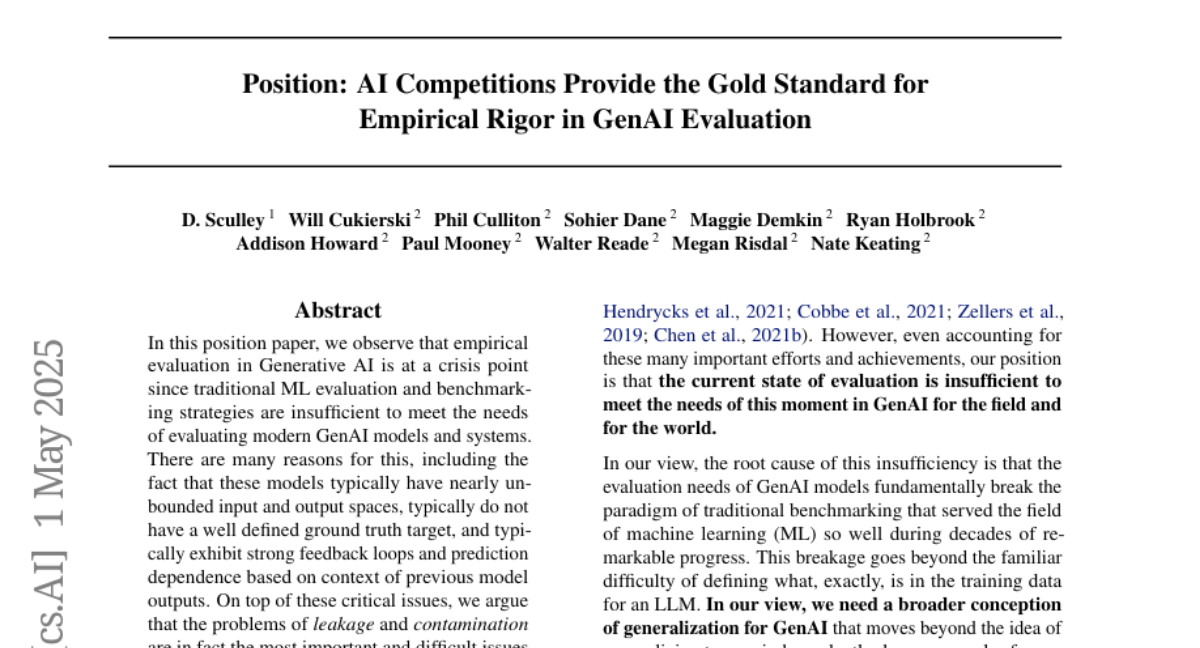Position: AI Competitions Provide the Gold Standard for Empirical Rigor in GenAI Evaluation
D. Sculley, Will Cukierski, Phil Culliton, Sohier Dane, Maggie Demkin, Ryan Holbrook, Addison Howard, Paul Mooney, Walter Reade, Megan Risdal, Nate Keating
2025-05-13

Summary
This paper talks about how AI competitions, like those on Kaggle, are the best way to fairly and accurately test how good generative AI models are, especially since traditional ways of checking AI performance don't work well for these new, creative systems.
What's the problem?
The problem is that generative AI models can take in almost any kind of input and produce a huge variety of outputs, so it's really hard to say what the 'right' answer is or to make sure the AI isn't accidentally cheating by seeing information it shouldn't. Regular benchmarks can get outdated or compromised, and it's tough to keep the tests fresh and secure.
What's the solution?
The researchers argue that AI competitions solve these problems by constantly providing new, unseen challenges and using strict rules to keep test data private. In competitions, lots of teams try to solve the same new problems at the same time, which makes it much harder for anyone to cheat or for the test to get stale. These setups also encourage open sharing of code and results, making it easier for everyone to see what works best.
Why it matters?
This matters because it helps the AI community trust the results of model evaluations and pushes everyone to build better, more reliable generative AI. By using competitions as the standard, we can make sure that new AI models are tested in the fairest and most rigorous way possible.
Abstract
Empirical evaluation of Generative AI models faces significant challenges due to unbounded input/output spaces, lack of well-defined ground truth, feedback loops, and issues like leakage and contamination, suggesting AI Competitions as a gold standard for robust evaluation.